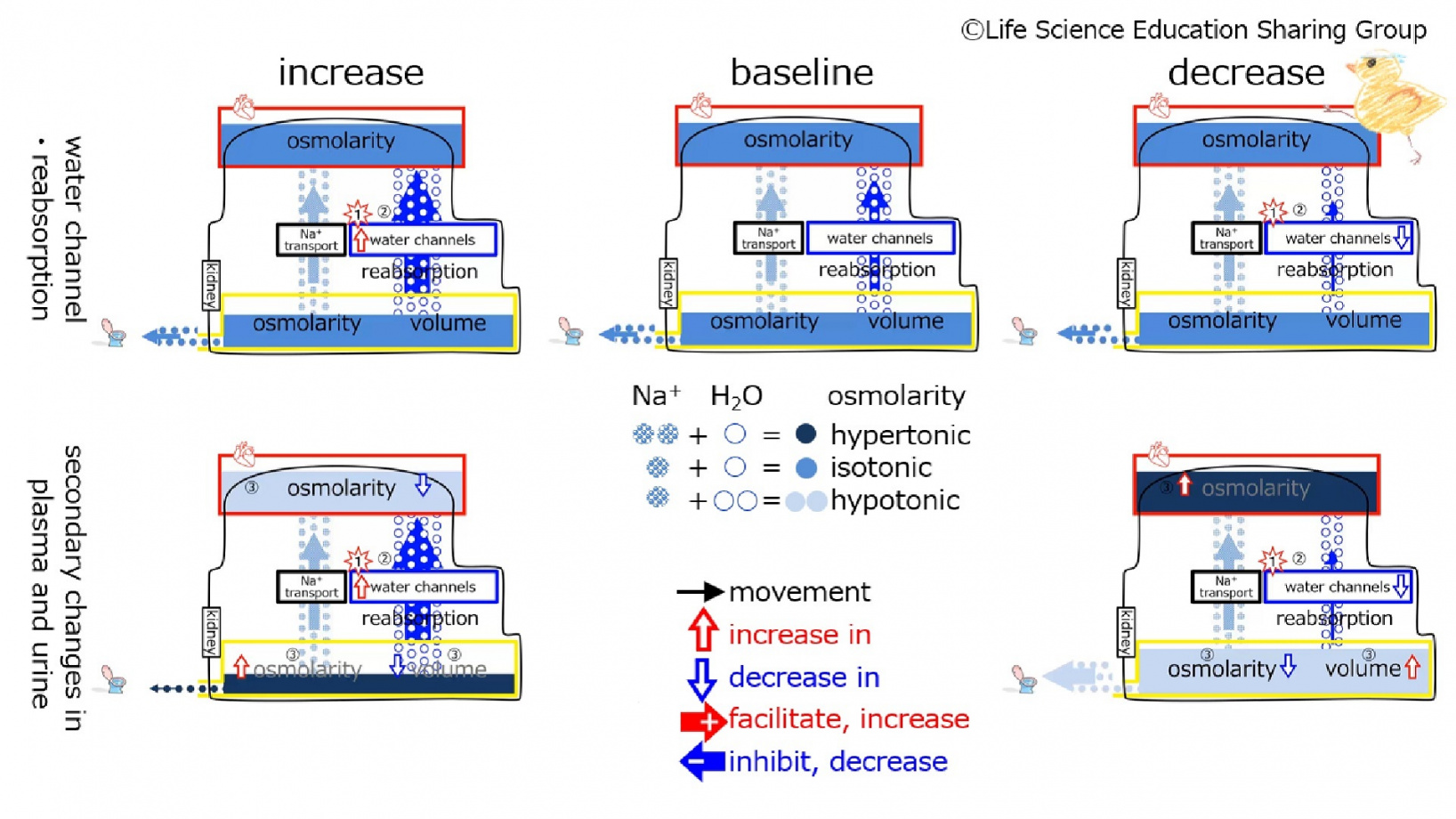SHolroydAtWeilCornellMedQatar/Urology/Kidney/Tubules/WaterChannels/EffectSummary
Challenge Quiz
With an increase a decrease in the synthesis, secretion, and blood concentration of vasopressin (anti-diuretic hormone, ADH), the number of water channels in the tubule increases.
With an increase a decrease in the synthesis, secretion, and blood concentration of vasopressin (anti-diuretic hormone, ADH), water reabsorption from the tubule increases.
With an increase a decrease in the synthesis, secretion, and blood concentration of vasopressin (anti-diuretic hormone, ADH), urine volume decreases.
With an increase a decrease in the synthesis, secretion, and blood concentration of vasopressin (anti-diuretic hormone, ADH), urine osmolarity increases.
With an increase a decrease in the synthesis, secretion, and blood concentration of vasopressin (anti-diuretic hormone, ADH), plasma osmolarity decreases.
With an increase a decrease in the synthesis, secretion, and blood concentration of vasopressin (anti-diuretic hormone, ADH), the number of water channels in the tubule decreases.
With an increase a decrease in the synthesis, secretion, and blood concentration of vasopressin (anti-diuretic hormone, ADH), water reabsorption from the tubule decreases.
With an increase a decrease in the synthesis, secretion, and blood concentration of vasopressin (anti-diuretic hormone, ADH), urine volume increases.
With an increase a decrease in the synthesis, secretion, and blood concentration of vasopressin (anti-diuretic hormone, ADH), urine osmolarity decreases.
With an increase a decrease in the synthesis, secretion, and blood concentration of vasopressin (anti-diuretic hormone, ADH), plasma osmolarity increases.
